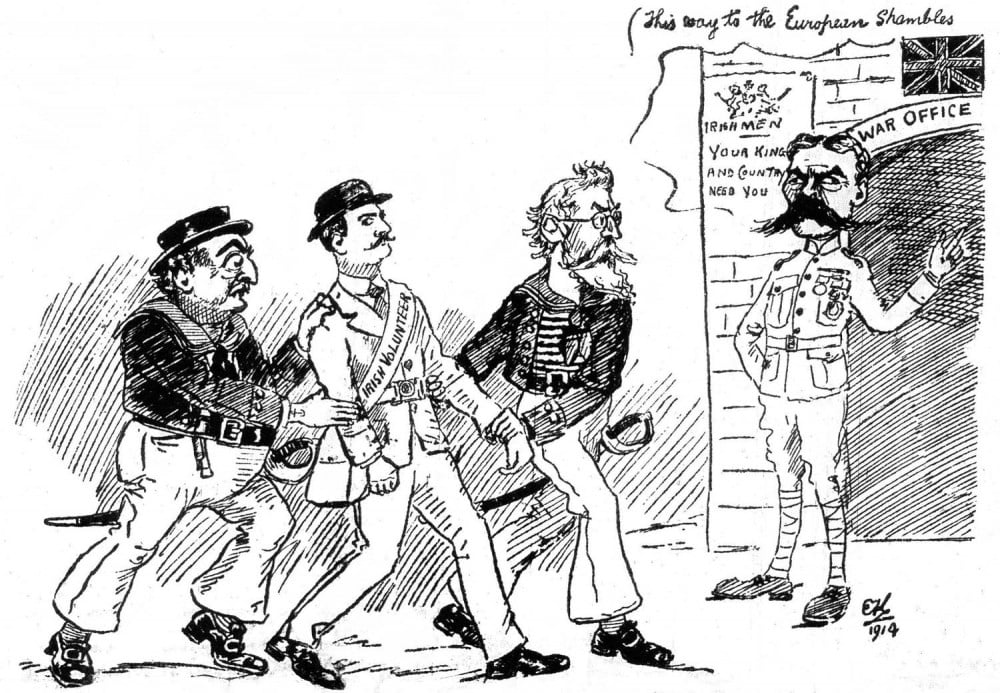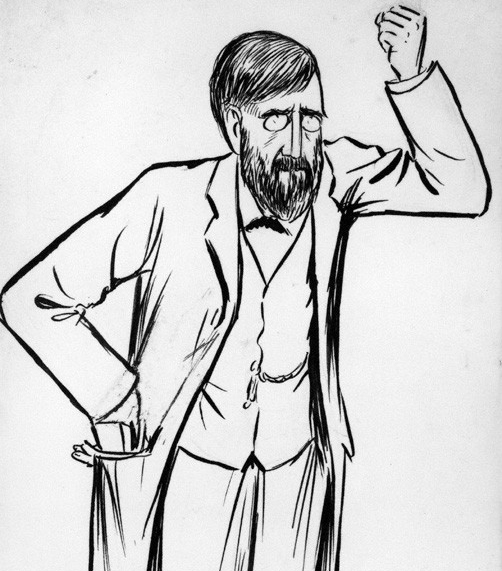‘What have you suffered for the cause of Ireland?’
John Dillon attacks opponents of his party's policy towards the war
Glasgow, 19 April 1915 - ‘We have in Ireland, still, a small, noisy faction who are opposed to our policy and declare that now is the time to strike at England’, the Irish Parliamentary Party MP John Dillon said yesterday.
Mr. Dillon was speaking at a huge gathering of 5,000 Irish people held in St. Andrew’s Hall in Glasgow. He was defending his party’s position on recruitment to the British Army and was highly critical of some of the opponents of this policy: ‘I feel tempted when I am accused of having sold the Irish cause and betrayed my people to ask some of the younger men who do so: 'What is your record? What have you done and suffered for the cause of Ireland that gives you the right to criticise others?''

A cartoon by Ernest Kavanagh featuring members of the Irish Party forcing a Volunteers towards a recruiting office. Mr Kavanagh was a frequent contributor to the Irish Worker newspaper, which was vocally opposed to John Redmond's policy towards the war. (Image: National Library of Ireland)
‘There are some young gentlemen who have never been in the firing line, and never will be, but who enjoy cheap treason, when it is perfectly safe, and think it is very fine to criticise men who have led the Irish people through many hard battles to the very eve of victory.’
The Irish in Scotland
The crowd had travelled from all over the west of Scotland where a huge Irish contingent lives. Mr. Dillon commended the Irish in Scotland for their contribution to the war effort: ‘Of all classes of the community, there is no class which has contributed so many recruits to the new armies, in proportion to their total number, as the Irish of Great Britain.’
Mr. Dillon also said that he understood that some men had ‘sent a message through Sir Roger Casement to the Kaiser of Germany that if he lands in Ireland there will be a rising in his favour. I would not advise the Kaiser to come on that promise, for the number of these men is really contemptibly small’.
[Editor's note: This is an article from Century Ireland, a fortnightly online newspaper, written from the perspective of a journalist 100 years ago, based on news reports of the time.]





















